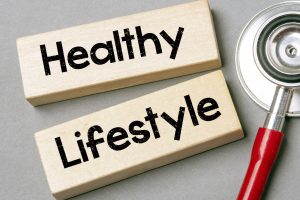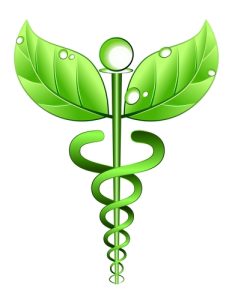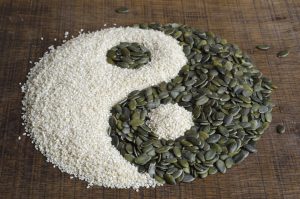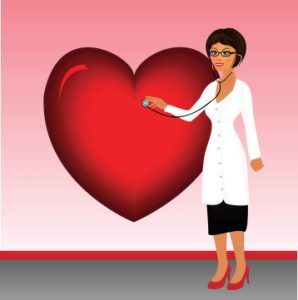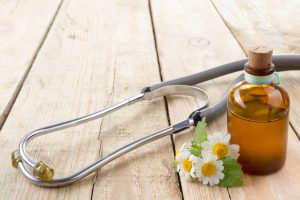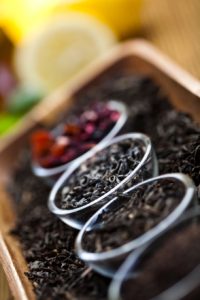By – James M. Katz, BA
In the ever-evolving landscape of healthcare, the role of holistic nursing health has emerged as a pivotal approach that integrates the physical, mental, emotional, and spiritual well-being of individuals. This approach, distinguishing itself from conventional medicine, emphasizes the importance of treating the whole person rather than isolating symptoms or diseases. The essence of holistic healing lies in its ability to blend traditional medical practices with alternative medicine, creating a comprehensive care model that fosters holistic well-being. As the concept of holistic health gains traction among both practitioners and patients, the role of holistic nursing has become increasingly vital. Holistic nurses serve as the linchpins in this care model, employing a variety of techniques—from ayurvedic principles to herbal medicine, and mindful eating—to support and promote the holistic health and healing journey of their patients.
The article delves into the crucial facets of holistic nursing, beginning with an understanding of what it entails and how it differs from conventional nursing practices. It will explore the assessment of holistic care needs and the implementation of complementary therapies such as Ayurvedic herbs and mindfulness techniques that are at the heart of holistic medicine. In building therapeutic relationships, holistic nurses draw upon their expertise as holistic health practitioners to guide patients on their journey to well-being, integrating alternative healing methods like herbal medicine and meditation. The discussion will extend to the practical aspects of becoming a holistic health coach or practitioner, covering the necessary certifications and overcoming potential barriers within the practice. By providing a roadmap to navigating the holistic health practice landscape, the article seeks to enlighten healthcare professionals and individuals interested in holistic health and healing about the integral role and comprehensive approach of holistic nursing.
Understanding Holistic Nursing
Definition and Scope
Holistic Nursing is defined as “all nursing practice that has healing the whole person as its goal”. This specialty is recognized by the American Nurses Association (ANA) and is distinguished from general nursing practice by its unique body of knowledge, evidence-based research, sophisticated skills, and defined standards of practice. Holistic nursing incorporates a diversity of modalities from a broad range of health practices and is grounded in a philosophy of living and being that emphasizes caring, relationship, and interconnectedness. The scope of holistic nursing extends beyond the individual to include the global community, making it an essential resource for nurses and other healthcare professionals. This specialty’s recognition by the ANA not only clarifies its role but also strengthens the professional practice by setting a foundation for holistic healthcare approaches.
Key Takeaways
- Holistic nursing focuses on treating the whole person, considering the interconnectedness of biological, social, psychological, and spiritual aspects.
- Core principles of holistic nursing include self-care, spirituality, and reflective practice.
- Holistic nurses apply holistic principles in various healthcare settings, including hospitals, universities, and private practices.
- Building trust and fostering relationships with patients are crucial components of holistic nursing.
- The holistic approach in nursing leads to more effective and compassionate care, empowering patients and improving health outcomes.
Core Principles of Holistic Nursing
Integration of Self-Care
Holistic nursing emphasizes the importance of self-care for nurses. This principle is based on the belief that nurses must engage in self-care to promote health and personal awareness. By doing so, they can serve others as instruments of healing.
The Philosophy Behind Holistic Nursing
Cognitive Domain
The cognitive domain in holistic nursing involves understanding the theoretical and scientific foundations of holistic care. This includes knowledge of the interrelationships between the bio-psycho-social-spiritual dimensions of a person. Nurses are encouraged to continually educate themselves to stay updated with the latest research and best practices in holistic care.
Experiential Domain
The experiential domain emphasizes the importance of personal experience and self-awareness in holistic nursing. Nurses are encouraged to engage in self-care, self-responsibility, and reflective practices. This often leads to a greater awareness of the interconnectedness of self, others, nature, and spirit. By nurturing their own well-being, nurses can provide more compassionate and effective care to their patients.
Affective Domain
The affective domain focuses on the emotional and relational aspects of holistic nursing. It involves cultivating empathy, compassion, and a deep sense of connection with patients. Nurses are encouraged to build trusting relationships and promote wellness through meaningful connections. This domain highlights the importance of understanding and addressing the emotional and spiritual needs of patients, recognizing that healing involves more than just physical care.
Benefits of Holistic Nursing
Effective and Compassionate Care
 Holistic Healthcare emphasizes treating the whole person, not just their physical symptoms. This approach results in more effective and compassionate care, as it recognizes the interconnectedness of different aspects of a patient’s life. By addressing emotional, mental, and spiritual needs, a Holistic Nurse Practitioner can provide a more comprehensive and empathetic care experience.
Holistic Healthcare emphasizes treating the whole person, not just their physical symptoms. This approach results in more effective and compassionate care, as it recognizes the interconnectedness of different aspects of a patient’s life. By addressing emotional, mental, and spiritual needs, a Holistic Nurse Practitioner can provide a more comprehensive and empathetic care experience.
Empowering Patients
One of the key benefits of the Role of Holistic Nursing is that it empowers patients to take an active role in their healing process. By involving patients in their care plans and encouraging them to make lifestyle changes, holistic nurses help patients feel more in control of their health. This empowerment can lead to better adherence to treatment plans and a greater sense of well-being.
Improved Health Outcomes
Holistic Nursing has been shown to improve health outcomes by focusing on preventative care and lifestyle modifications. By educating patients on how to reduce their risk of disease and injury, holistic nurses can help improve overall health and reduce healthcare costs. The individualized care provided by a Holistic Nurse Practitioner allows for tailored treatment plans that can lead to more positive outcomes.
Core Principles
Holistic nursing is not just a practice but an attitude, a philosophy, and a way of being that integrates self-care, self-responsibility, spirituality, and reflection. This integration leads nurses to a greater awareness of the interconnectedness of self, others, nature, and the spirit, enhancing their ability to facilitate the healing process.
The practice of holistic nursing is based on five core values: Holistic Philosophy and Education, Holistic Ethics, Theories, and Research, Holistic Nurse Self-Care, Holistic Communication, Therapeutic Environment and Cultural Competence, and Holistic Caring Process. These values guide holistic nurses in becoming therapeutic partners with individuals, families, and communities, drawing on nursing knowledge, theories, research, expertise, intuition, and creativity.
Holistic nurses employ a variety of healing and integrative therapies such as imagery, visualization, relaxation, deep-breathing techniques, stress management, aromatherapy, and subtle energy therapies. These practices are used alongside traditional medical treatments, reflecting holistic nursing’s commitment to treating the whole person—physiology, mental health, spiritual beliefs, and social environment.
Assessing Holistic Care Needs
Conducting a Holistic Assessment
A holistic assessment in nursing encompasses a comprehensive evaluation of an individual’s overall health and well-being, addressing not just the physical but also mental, social, financial, and environmental aspects. This type of assessment aims to identify all areas of concern and develop a plan of care that addresses the individual’s holistic needs. During the assessment, the healthcare team gathers detailed information about the person’s medical history, current symptoms, and overall functioning. This includes conducting physical exams, psychological assessments, and other diagnostic tests to form a complete picture of the patient’s health. Key components of a holistic assessment include examining the patient’s physical health to identify any medical conditions, medications, or physical limitations that might affect daily activities. The team also evaluates mental health, assessing emotional, psychological, and cognitive well-being.
Social and environmental factors are considered as well, including an assessment of the individual’s social support network, living conditions, and access to resources and services. The needs of family members and caregivers providing support are also evaluated, as are any risk factors that may impact the individual’s well-being, such as poverty, isolation, or lack of healthcare access.
Identifying Key Areas of Focus
In holistic care, identifying key areas of focus involves a deep dive into the patient’s health history, spending ample time gathering information and identifying patterns or root causes that affect their health. This includes a review of past personal medical history, family health history, allergies, medication history, pain locations, and mental health conditions such as signs of depression or substance abuse.
A holistic health assessment is not only about gathering data but also about engaging in a person-centered care approach. It involves an extensive evaluation of the patient’s physiological, psychological, sociological, developmental, spiritual, and cultural status. Lifestyle choices and habits such as exercise, nutrition, and sleep are discussed to understand their impact on the patient’s health.
Mutual goal-setting is a critical aspect of holistic assessments. Nurses work with patients to establish wellness goals, suggesting tools and methods that may be helpful and allowing patients to determine the best strategies to adopt. This collaborative approach ensures that care plans are tailored to meet the specific needs and preferences of each individual, promoting better health outcomes and patient satisfaction.
Throughout the assessment process, the healthcare team closely collaborates with the patient and their family or caretaker, ensuring that the patient’s needs are met and that they are actively involved in the decision-making process. This partnership is crucial for developing an effective plan of care that addresses the patient’s physical, mental, emotional, and social needs, and may include interventions such as medical treatment, therapy, rehabilitation, and other supportive measures.
Implementing Complementary Therapies
Step-by-Step Integration
Implementing complementary therapies within a holistic nursing framework involves a thoughtful and systematic approach. The initial step is to determine which complementary therapy might be most beneficial for the patient. This decision should be based on a comprehensive understanding of the patient’s current health status, medical history, and personal preferences. Complementary therapies encompass a wide range of practices, from natural products and nutritional supplements to mind-body and energy-based therapies. It is crucial to consider what the patient hopes to gain from the treatment and to form realistic expectations in collaboration with healthcare professionals.
Once a therapy is chosen, it’s essential to consult with the patient’s standard healthcare team to ensure the therapy does not interfere with existing treatments. Questions regarding the safety of combining new therapies with current medical treatments should be addressed. This step helps in safeguarding the patient’s overall health and ensuring the complementary therapy provides the intended benefits without adverse effects.
Choosing the Right Therapies
The selection of appropriate therapies should be guided by both scientific evidence and cultural practices. For instance, therapies like acupuncture, which has been backed by research and widely accepted in medical communities, might be more readily integrated into patient care plans. On the other hand, less conventional therapies such as Reiki or energy therapies might require more thorough consideration of their scientific validity and alignment with patient beliefs and preferences.
Healthcare providers should engage in discussions with patients about the benefits and potential risks associated with chosen therapies. It’s important to verify the qualifications of the therapists and ensure they are certified by recognized professional bodies. This verification helps maintain high standards of care and ensures that therapies are administered by qualified professionals. Providers should also consider the logistical aspects of integrating new therapies, such as the availability of qualified practitioners and the geographical accessibility for patients. Ensuring that therapies are provided in a setting that supports patient comfort and convenience can significantly affect the overall effectiveness of the treatment plan.
In conclusion, the implementation of complementary therapies requires a balanced approach that considers scientific evidence, patient safety, and cultural relevance. By carefully selecting and integrating these therapies, holistic nurses can enhance the conventional care models and provide a more comprehensive treatment approach that addresses all aspects of a patient’s well-being.
Building Therapeutic Relationships
Effective Communication Techniques
Building therapeutic relationships in holistic nursing hinges significantly on effective communication techniques. Holistic nurses prioritize listening and focusing as foundational skills to foster patient-centered care. By listening attentively, nurses gain a deeper understanding of their patients’ concerns, fears, and needs. This involves more than hearing words; it requires being fully present, suspending judgment, and engaging in both verbal and nonverbal communication cues like eye contact and nodding.
Furthermore, focusing ensures that nurses provide their undivided attention, helping patients feel heard and understood. This not only enhances the therapeutic relationship but also allows nurses to pick up on subtle cues that are crucial for assessing the patient’s overall well-being. Effective communication also includes creating a peaceful environment free from distractions, allowing for open and honest dialogues where patients can express themselves without inhibition.
Patient-Centered Care
Patient-centered care (PCC) in holistic nursing is an approach that is not only about treating the ailment but also about respecting and responding to individual patient preferences, needs, and values. This care model is holistic, individualized, respectful, and empowering, ensuring that patient values guide all clinical decisions. By integrating Jean Watson’s and Kristen Swanson’s theories, holistic nursing practices emphasize altruism, sensitivity, and the importance of being mindfully present with the patient.
Holistic nurses apply these principles by placing relationships before tasks, thereby fostering an environment where patients feel supported throughout their health, recovery, or end-of-life transitions. The Center for Medicare and Medicaid Services underscores the importance of person-centered care as essential to delivering quality care, which holistic nursing robustly supports through its comprehensive and empathetic approach to patient engagement.
In conclusion, therapeutic relationships in holistic nursing are cultivated through advanced communication skills and a staunch commitment to patient-centered care. These relationships not only support the healing process but also enhance personal development and job satisfaction among nurses, ultimately leading to better patient outcomes and a more fulfilling nursing practice.
Integrating Mindfulness and Meditation
Guided Practices
Guided mindfulness and meditation practices are instrumental in enhancing the well-being of healthcare professionals, especially nurses who face high-stress environments. By taking a moment to pause and allowing the body to relax, individuals can experience a natural ease in breathing and a settled mind. A simple practice involves clasping one’s hands together, feeling the connection and the strength they possess—a reminder of the support and care these hands have provided to many. This act of mindfulness can bring a profound sense of gratitude and acknowledgment of one’s efforts and resilience during challenging times.
Benefits and Techniques
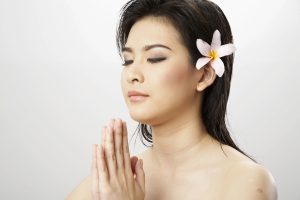 The practice of mindfulness incorporates various techniques that extend beyond traditional meditation. Mindfulness-Based Stillness Meditation, for example, is tailored for both beginners and those familiar with mindfulness, promoting the integration of mindfulness into daily routines. This approach not only revitalizes the mind and body but also enhances decision-making and reduces stress, thereby improving overall resilience.
The practice of mindfulness incorporates various techniques that extend beyond traditional meditation. Mindfulness-Based Stillness Meditation, for example, is tailored for both beginners and those familiar with mindfulness, promoting the integration of mindfulness into daily routines. This approach not only revitalizes the mind and body but also enhances decision-making and reduces stress, thereby improving overall resilience.
Research indicates that mindfulness meditation can significantly impact mental and physical health. Regular mindfulness practice has been shown to lower blood pressure, improve sleep, and assist in managing pain. Moreover, mindfulness techniques help in cultivating a present-moment awareness, which can lead to healthier lifestyle choices such as improved dietary habits and increased physical activity.
In everyday life, mindfulness can be seamlessly integrated through mindful walking, eating, and listening. Starting the day with mindfulness sets a positive tone, while mindful eating encourages a deeper appreciation and enjoyment of food. Likewise, mindful walking and listening can transform routine activities into moments of deep presence and connection.
Overall, the integration of mindfulness and meditation in nursing not only supports personal health but also enhances the quality of care provided to patients. By adopting these practices, healthcare professionals can maintain a balanced state of mind, which is crucial in their roles as caregivers.
Utilizing Herbal Medicine
Basic Herbal Treatments
Herbal medicine has been a cornerstone of healthcare for centuries, utilized across various cultures and traditional healing systems. Derived from plants and plant materials, herbal medications offer a rich source of bioactive compounds like alkaloids, flavonoids, and polyphenols, which can interact with biological systems to provide therapeutic benefits. These treatments have been traditionally used for a wide range of conditions, including digestive disorders, respiratory ailments, and chronic pain, reflecting their broad applicability and historical significance.
Despite their natural origins and historical usage, the effectiveness of many herbal supplements remains a topic of debate. While some, like St. John’s wort for mild to moderate depression and Ginkgo biloba for mild cognitive impairment, have shown evidence of effectiveness, the majority of herbal supplements have inconclusive or mixed results in modern medical research. This highlights the importance of further scientific studies to establish a clearer understanding of their efficacy and safety.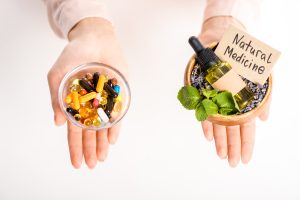
Safety and Efficacy
The safety and regulation of herbal medicines pose significant challenges. The Food and Drug Administration (FDA) does not require pre-marketing approval for herbal products as it does for conventional medications, creating a regulatory loophole that may contribute to the risk of adverse effects. Herbal supplements can be associated with serious health risks, including life-threatening pharmacological and toxicological effects due to both the intrinsic properties of the herbs and the presence of adulterants or contaminants.
Herb-drug interactions are particularly concerning, as they can alter the levels or effects of conventional drugs through pharmacokinetic or pharmacodynamic mechanisms, potentially leading to adverse outcomes. Additionally, some herbs are known to be genotoxic or carcinogenic, further emphasizing the need for cautious use.
Given these risks, it is crucial for healthcare providers to monitor the use of herbal supplements, especially in vulnerable populations such as children, elderly individuals, pregnant or breastfeeding women, and those with compromised immune systems. Implementing stricter regulations, enhancing the knowledge of healthcare practitioners, and establishing a standardized pharmacovigilance system are essential steps towards ensuring the safe and effective use of herbal medicines in clinical practice.
Holistic Nursing Self-Care Practices
No one should never have to be told to practice what they preach. The Holistic Nursing field is no different. Self-care is utilizing preventative health practices to take better care of oneself.
Self-care practices may include:
- Regular physical activity
- Mindfulness and meditation
- Balanced nutrition
- Adequate rest and sleep
- Spirituality in Nursing
Holistic Spirituality
Spirituality is a core component of holistic nursing. It involves recognizing and addressing the spiritual needs of patients as part of their overall care.
This can include:
- Providing a compassionate presence
- Supporting patients in their spiritual practices
- Facilitating connections with spiritual resources
Reflective Practice
Reflective practice is essential in holistic nursing. It involves continuous self-evaluation and learning from experiences to improve patient care. Reflective practice helps nurses to:
- Develop greater self-awareness
- Enhance their clinical skills
- Foster a deeper understanding of patient needs
- Holistic Nursing in Clinical Practice
Daily Application of Holistic Principles
Holistic nurses use holistic principles and modalities in their daily life and in clinical practice to remove the barriers to the healing process. They create a space within and around themselves that allows them to be instruments of healing. This involves sharing their authenticity, caring presence, and nursing skills to facilitate the birth, growth, recovery, or end-of-life transition for all people who need their care.
Creating Healing Environments
Holistic nursing is not merely something we do; it is also an attitude, a philosophy, and a way of being. This requires nurses to integrate self-care, self-responsibility, spirituality, and reflection in their lives. By doing so, they create healing environments that foster the interconnectedness of self, others, nature, spirit, and relationship with the global community.
Patient-Centered Care
Holistic nursing is practiced by nurses in virtually every area of care. The specialty is based on practice that recognizes the body-mind-spirit connection of persons. This approach demands its practitioners integrate self-care and self-responsibility into their own lives, ensuring that they can provide patient-centered care that addresses the whole person, not just their physical ailments.
The Role of Relationships in Holistic Nursing
In holistic nursing, fostering relationships with patients is essential for promoting healing and wellness. By understanding each patient’s unique biological, social, psychological, and spiritual needs, holistic nurses can provide individualized care. Building trust is the foundation of these relationships, enabling patients to feel safe and supported throughout their healing journey.
Holistic nurses recognize the importance of connection in promoting wellness. They use holistic principles and modalities to remove barriers to the healing process, creating a space that allows for authentic, caring presence. This connection not only supports the patient’s physical health but also their emotional and spiritual well-being.
Holistic nursing is based on the principle that a patient’s biological, social, psychological, and spiritual aspects are interconnected. These elements fit together to form a unique person, and understanding this interconnectedness is crucial for providing comprehensive care. Holistic nurses integrate self-care, self-responsibility, spirituality, and reflection into their practice, which enhances their awareness of these interconnected aspects and improves patient outcomes.
Responsibilities of a Holistic Nurse
Whole Person Care
Holistic nurses perform many of the same basic duties as other nurses, with the addition of fully focusing on making a patient feel relaxed, comfortable, and part of the healing process. This involves learning a patient’s name, maintaining eye contact, showing compassion, and using imagery and relaxation techniques for pain control instead of administering medication when possible.
Lifestyle Examination
A holistic nurse has a responsibility to apply the principles of holistic care to patients within their practice. This includes examining a patient’s lifestyle to understand their diverse needs. Holistic nurses foster relationships with their patients to promote healing and wellness, recognizing that a patient’s biological, social, psychological, and spiritual aspects are interconnected.
Integrative Focus
Holistic nurses deliver care by integrating various methods to address the overall wellness of the patient. This may involve:
- Using non-pharmacological methods for pain control
- Encouraging self-care practices
- Incorporating spirituality into care plans
- Promoting reflective practices among patients
By focusing on these integrative methods, holistic nurses aim to provide comprehensive and individualized care.
Holistic Nursing Across Healthcare Settings
Holistic nurses work in a variety of healthcare settings, each offering unique opportunities to apply holistic principles and modalities. These settings include hospitals, universities, and private practice. In each of these environments, holistic nurses strive to create spaces that facilitate healing and promote well-being by integrating self-care, spirituality, and reflective practice into their daily routines.
Hospitals
In hospitals, holistic nurses play a crucial role in patient care by addressing not only the physical needs of patients but also their emotional, social, and spiritual needs. They work alongside other healthcare professionals to create comprehensive care plans that support the whole person. This approach can lead to improved patient outcomes and higher levels of patient satisfaction.
Universities
Within academic settings, holistic nurses contribute to the education and training of future healthcare professionals. They teach holistic principles and practices, emphasizing the importance of treating the whole person. By fostering a holistic mindset in students, these nurses help to shape the future of healthcare to be more inclusive and compassionate.
Private Practice
In private practice, holistic nurses have the opportunity to offer personalized care tailored to the individual needs of their clients. This setting allows for more flexibility and creativity in the application of holistic modalities. Nurses in private practice can build strong, trusting relationships with their clients, which can lead to more effective and sustained health outcomes.
Navigating Certification
Requirements and Processes
Certification for holistic nurses can be governed by multiple institutes, organizations and corporations such as the American Holistic Nurses Credentialing Corporation (AHNCC), our organization the American Institute of Health Care Professionals (AIHCP) and the American Holistic Nurses Association (AHNA). Normally the certification process is designed to validate a nurse’s qualifications and specialized clinical knowledge in holistic nursing based on predetermined standards of professional practice. Many organizations have their own prerequisites and educational requirements needed to obtain certification. Registered nurses must demonstrate a commitment to holistic health principles and meet specific educational and practice requirements.
For initial certification, applicants must hold an unrestricted, current U.S. RN license and complete a continuing nursing education (CNE) hours in holistic nursing theory, research, practice, or related topics. The specific requirements vary by certification level, ranging from the Holistic Nurse Board Certified (HN-BC) to the Advanced Practice Holistic Nurse Board Certified (APHN-BC), each necessitating different levels of education and experience.
Maintaining Certification
Maintaining certification requires holistic nurses to demonstrate ongoing competency in their specialty area through continuous professional development and adherence to educational standards. Our certification is valid for a period of 4 years, after which certified members must renew their credentials by meeting the recertification requirements.
Recertification involves accumulating a specific number of continuing education hours related to holistic nursing, holistic health, or nurse coaching. These hours can be earned through various professional development activities such as attending workshops, seminars, or conferences; publishing research; or presenting at professional events. Additionally, nurses must maintain an unrestricted RN license and remain active in their specialty area. AIHCP provides a structured framework for recertification, ensuring that nurses continue to integrate and apply their knowledge, skills, and expertise ethically and effectively. This process not only supports the professional growth of holistic nurses but also ensures the high standards of care they provide to their patients.
Overcoming Barriers in Practice
Addressing Common Challenges
One of the primary challenges in the practice of holistic nursing is managing the workload in a professional environment, which often restricts the provision of holistic care. Nurses frequently encounter situations where wards are overcrowded and busy, limiting their ability to attend to each patient’s diverse needs comprehensively. For instance, one nurse expressed, “Sometimes, the ward is too crowded and busy; although I understand that patients have different needs, and I want to meet them, but I don’t get the opportunity to do it”. This sentiment is echoed by another nurse who noted, “If the numbers of patients were smaller in the ward, we would have more opportunities to provide better care and we could attend to all of our patients’ needs”.
Moreover, the sheer number of working shifts contributes to exhaustion among nurses, diminishing their capacity to provide suitable care. “Because of the huge number of shifts, we are always tired and don’t have the required energy for providing suitable care,” explained a nurse. Additionally, the management’s focus on routine tasks over holistic care exacerbates these challenges. A nurse pointed out, “There is no difference between a nurse who considers and attends to the patients’ different needs and another who only does the routine tasks. Ironically, the latter is more popular with the managers. Routine tasks are considered as evaluation criteria”.
Conclusion
Throughout this comprehensive exploration, we’ve uncovered the multifaceted nature of holistic nursing and its quintessential role in enriching healthcare by addressing the physical, mental, emotional, and spiritual well-being of patients. From the grounding principles and practices such as mindfulness, herbal medicine, and the integration of complementary therapies, to the challenges of navigating certification and overcoming practical barriers, it’s clear that holistic nursing transcends traditional borders of care. The journey through these varied dimensions not only highlights the importance of holistic approaches in modern healthcare but also underscores the critical role holistic nurses play in fostering healing environments that cater to the entirety of a person’s being.
Moreover, the discussions encapsulated here serve not only as a testament to the depth and breadth of holistic nursing but also as a beacon, guiding toward a healthcare future where patient-centered care is paramount. The implications of adopting holistic practices reach beyond immediate patient outcomes, potentially influencing broader healthcare policies and practices to incorporate more integrated approaches to health and well-being. As we reflect on the insights shared, it’s evident that the path to holistic health demands continuous learning, adaptability, and a deep-seated commitment to nurturing the whole person—a mission that holistic nursing bravely and compassionately undertakes.
Making a decision to specialize a nursing career can be a huge step in furthering a nursing practice. It can help lead a nursing professional into a specialized field taking them off the floor and into a valuable role. If you’re a licensed nurse and are considering becoming a Holistic Nurse then perhaps you should review our Holistic and Integrative Healthcare Certification Program? For more information on how to become a certified Holistic Nurse with our organization please visit our website:
FAQs
1. What does a holistic nurse do? Holistic nurses provide care that is both compassionate and comprehensive. They focus on being attentive and present while caring for patients, acknowledging all aspects of a person’s well-being including mind, body, and spirit. This approach ensures that the entire individual is treated, not just isolated symptoms.
2. How does holistic nursing contribute to health promotion and illness prevention? Holistic nursing involves a patient care approach that considers the physical, social, spiritual, and psychological aspects of a person’s life. This method of care has proven effective in preventing diseases and deaths, and in enhancing the overall quality of healthcare services.
3. What are the core principles of holistic nursing? The essence of holistic nursing is grounded in the integration of self-care, self-responsibility, spirituality, and personal reflection. Nurses practicing in this field develop a deeper understanding of the connections between themselves, others, nature, and a higher power, whether referred to as God, LifeForce, the Absolute, or the Transcendent.
4. Why is holistic care significant in healthcare? Holistic care addresses multiple facets of health, including physical, mental, emotional, social, and spiritual components. This approach is crucial in healthcare because it draws from various disciplines, religions, and cultures to heal not only individuals but also communities and the environment, leading to comprehensive wellness and healing.
5. What is holistic nursing? Holistic nursing is a philosophy of caring for patients that considers the whole person rather than individual parts when treating health conditions. It recognizes the interconnectedness of the biological, social, psychological, and spiritual aspects of a person.
6. In what settings do holistic nurses work? Holistic nurses work in all healthcare settings, including hospitals, universities, and private practice. They use holistic principles and modalities to create healing environments and facilitate patient care.
7. What are the responsibilities of a holistic nurse? The responsibilities of a holistic nurse include offering whole person care, examining the patient’s lifestyle for health improvement, and integrating holistic principles into other areas of nursing practice.
Additional Articles
HOLISTIC NURSING CARE FOR ACUTE MYOCARDIAL INFARCTION PATIENTS: AN EVIDENCE-BASED APPROACH. Ahmed Lateef Alkhaqani Et Al. American Research Journal of Nursing and Health Sciences (ARJNHS) Volume.1, Number 1; February-2023; Published By: Zendo Academic Publishing
Access link here
Improving the physical health of people with a mental illness: holistic nursing assessments. Siobhan Tranter, Et Al. Mental Health Practice 02 May 2024 / Vol 27 issue 3
Access link here
The Effect of Holistic Nursing Competence on Work Engagement, Self-Reflection and Insight in Nurses. Aydin A, Et Al. Journal of Holistic Nursing. 2023;41(3):310-317.
Access link here
Implementing a Spiritual Care Subject for Holistic Nursing Practice: A Mixed Method Study. Cooper KL, Chang E. Et Al. Journal of Holistic Nursing. 2023;41(3):233-245
Access link here


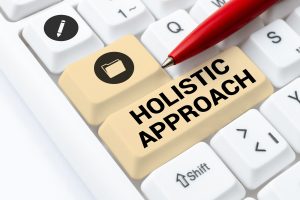
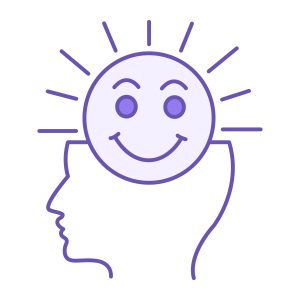
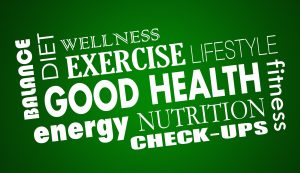






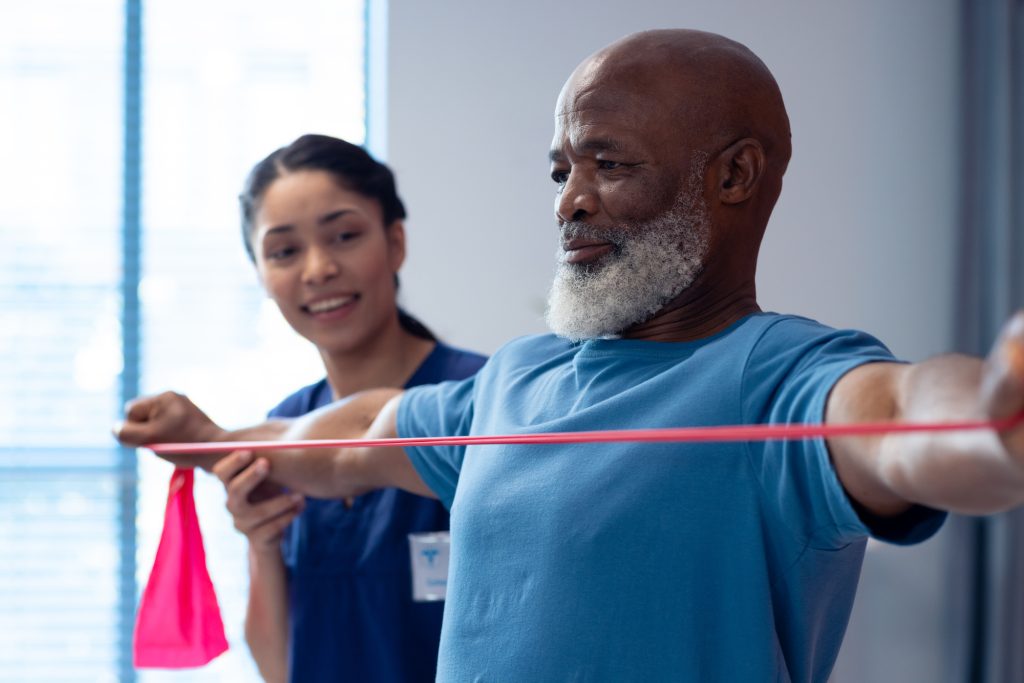 Written by Veronica Turner
Written by Veronica Turner Written by Veronica Turner
Written by Veronica Turner



